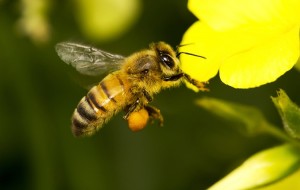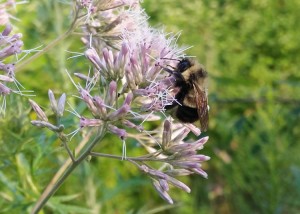World Bee Day
Friday, May 19th, 2023Tomorrow, May 20th, is World Bee Day! This day, designated by the United Nations, celebrates bees and raises awareness of how important bees are to our daily life. Bees and other pollinators are endangered by human activities. Nearly 75 percent of all food crops depend on pollinators. They are necessary for food security and biodiversity throughout the Earth. World Bee Day is a cause to learn more about bees and support causes that protect bees.
Bees are insects that live in almost every part of the world except near the North and South poles. Bees are one of the most useful of all insects. They produce honey, which people use as food; and beeswax, which is used in such products as adhesives, candles, and cosmetics. There are about 20,000 species (kinds) of bees. Only the kinds known as honey bees make honey and wax in large enough amounts to be used by people.
Flowers provide food for bees. The bees collect tiny grains of pollen and a sweet liquid called nectar from the blossoms they visit. They make honey from the nectar, and use both honey and pollen as food. During their food-gathering flights, bees spread pollen from one flower to another, thus pollinating (fertilizing) the plants they visit. This enables the plants to reproduce. Numerous wild plants and such important food crops as fruits and vegetables depend on bees for fertilization.
Both young and adult bees sometimes fall victim to such diseases as European foulbrood and American foulbrood. These diseases may turn the bees into a gummy, lifeless mass. They are caused by bacteria. Diseases caused by fungi, such as Nosema disease, are also a threat to bees.
Human activities also harm bees. Insecticides meant to kill other insects kill thousands of bees each year. Weed-killing sprays take away an important source of bee food by destroying weeds and their flowers.
Colony collapse disorder (CCD) is an unusual condition that destroys hundreds of thousands of honey bee colonies each year in the United States. When a colony is affected by CCD, most of the adult bees disappear from the hive. The colony still contains a queen, immature bees, and honey. Experts are not certain what causes CCD. Mites and agricultural pesticides may contribute to CCD. Pesticides are chemicals used to kill insects and other pests.






